Born in the heart of San José, near the iconic Paseo Colón, Don Antonio López Escarré is a reflection of the diversity that defines Costa Rica. In an intimate interview, the ambassador shares his personal and professional journey, where his parents’ teachings have served as his compass and guiding light. With a critical eye toward respect and culture, Escarré positions himself as a bridge between two nations, seeking not only diplomacy but a genuine exchange that benefits his people.
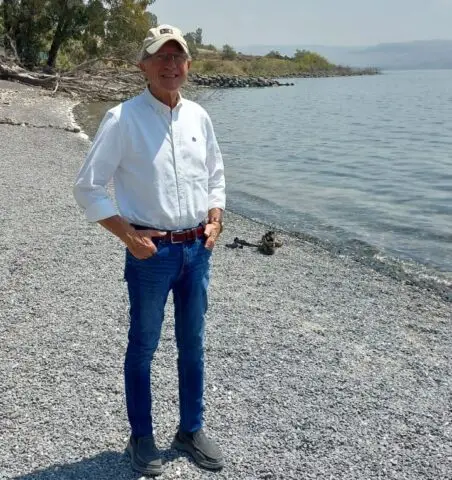
Our protagonist grew up surrounded by a diversity of cultures, with Spanish, Israeli, Jewish, Arab, Japanese, and other neighbors. He describes his childhood as a small “Middle East,” which allowed him to develop a broad view of the world from an early age and also taught him the importance of coexistence and mutual respect.
At TCRN, we wanted to learn more about Ambassador Escarré’s roots, and he told us that his parents’ teachings have been fundamental pillars in his life. He had a very religious father who owned a bookstore and instilled in him the value of unconditional respect. “Whoever comes through this door, you have to ask them, ‘How can I help you?’” he would say, teaching him to treat everyone with courtesy, regardless of their origin or status. This principle of respect and attention to the customer, regardless of their appearance, has remained engraved in his memory and his way of interacting with the world.
His mother, born in Spain and raised in Europe, instilled in him a deep European culture, especially in the art of social relations: “how to behave, how to eat, how to speak.” This protocol, according to Don Antonio, has been invaluable, especially in his experience in the foreign service.
“My father taught me how to sell. I read many books that Dad had in the library, Mom painted, she was a great painter,” he said.
Don Antonio reflects on the loss of respect for older people in today’s society. Throughout his life, he has maintained the belief that respect is essential in all human interactions, regardless of nationality or social status.
Strengths and Weaknesses
At almost 80 years old and with a touch of humor, he expresses his desire for a brain transplant to overcome his minor weaknesses, such as forgetting names, but he also values his tenacity and passion for extreme sports. “I’m not afraid of anything,” he says, recalling his past as a race car driver and his interest in martial arts such as karate and taekwondo. However, his greatest desire is to continue contributing to the development of his country, especially in the field of international and commercial relations.
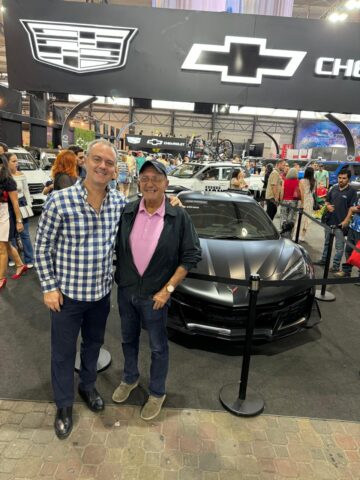
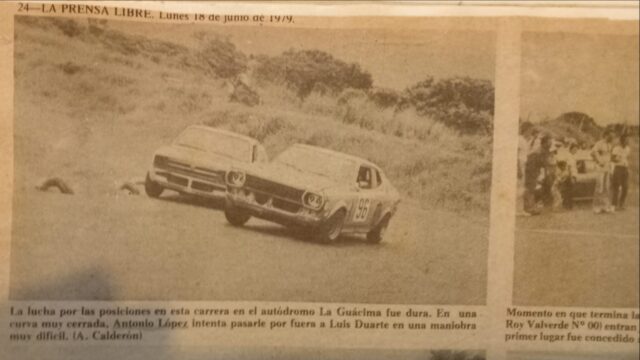
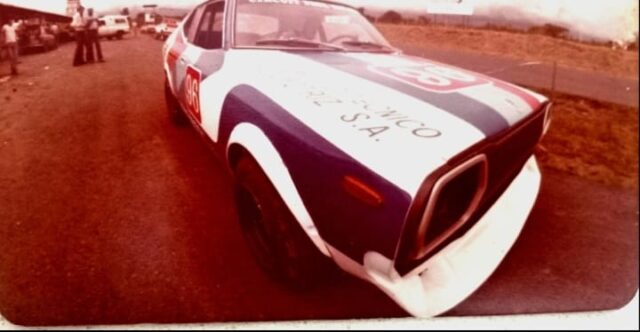
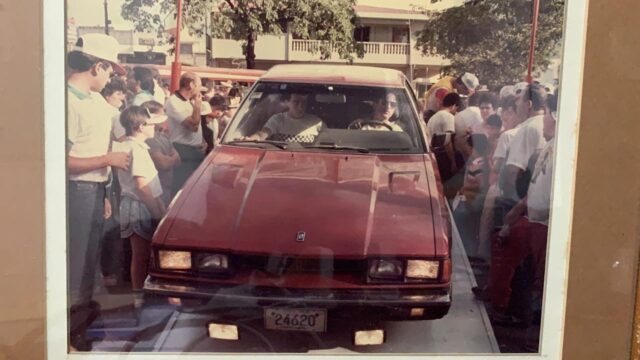
He describes himself as an ordinary human being who makes mistakes and has no luck in the lottery.
He is not afraid of attacks from his opponents, recalling his time as a presidential candidate for the Libertarian Movement, a party with ideas opposed to those of communism.
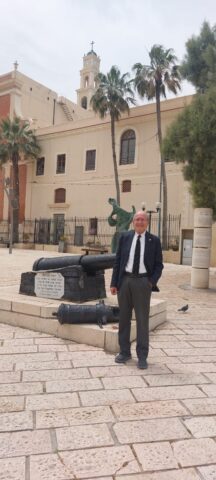
Promoting Costa Rica
One of his greatest achievements has been promoting Costa Rica internationally, particularly in Israel today.
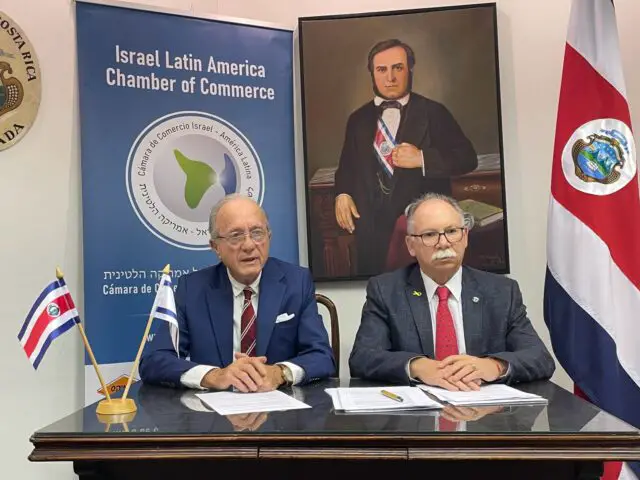
Ambassador Escarré emphasized pineapple exports and his focus on strengthening trade ties between the two nations.
And so it is, Costa Rica exports pineapple to Israel. In total, the Central American country is exporting $15 million worth of pineapple. “It’s not much, but we could be exporting a lot more pineapple. It’s difficult because it has to be transported by plane, and the health requirements are very strict, which is why we want to have a free trade agreement. All countries have their health policies, which are important to know.”
Regarding Costa Rican coffee, Don Antonio reported that it is also reaching Israel, but in very small quantities. “Coffee is very popular here; we have good quality, and we have to promote its export much more,” he added.
Two goals to achieve…
The Costa Rican ambassador believes that among the goals he wants to achieve is for Israel and Costa Rica to sign a free trade agreement. “That is my mission, and with that, I feel satisfied. Then there is another, which is to bring the airline to Israel-San José. Do you know how much tourism we would bring? Now an agreement has been made between Argentina and Israel, because Javier Milei came here and loves Israel. Now, I’m going to achieve it… But if I don’t, at least I feel satisfied that I did everything I could, and I will say that I did what I could.”
According to Don Antonio López, many Israelis travel to Costa Rica for tourism. “That is why I insist on establishing an agreement so that the Israeli national airline can have a direct flight to San José. That is my commitment to Costa Ricans, to the country: to bring more investment, more exports, more tourism, and more peace.”
From the business world to diplomacy
Don Antonio’s career in diplomacy began thanks to two uncles, one of whom was the Consul General of Costa Rica in Barcelona, Spain, and the other, also named Antonio Escarré, who was an ambassador and taught him a lot about the diplomatic world. Both introduced him to the world of international relations.
Don Antonio was struck by the relations between Costa Rica and Spain and what was produced, exported, and imported, “and I saw the need to transform this diplomacy into a commercial one. You see, relations between countries are very important, but at this moment, commercial relations are much more so.”
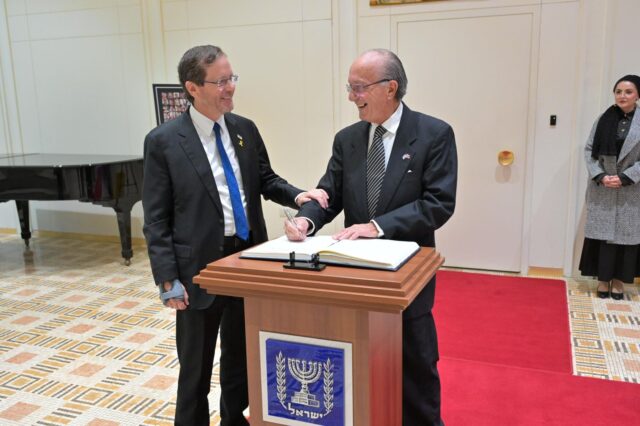
Antonio López Escarré was ambassador to Spain for four years, then ambassador to Panama for two years, before resigning for personal reasons.
He is an honorary member and one of the founders of Fedecámaras Costa Rica.
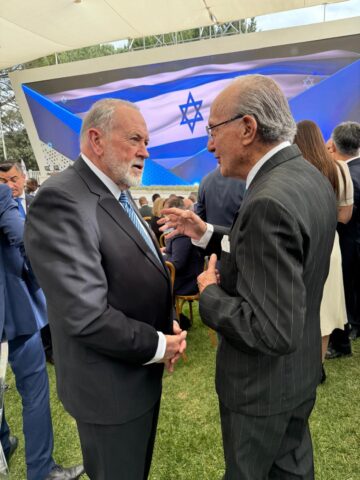
Is there any free time?
This admirable Costa Rican told us that he is working all the time. Now he has been able to sleep, but a few weeks ago, he was sleeping maybe three or four hours. “We had to go out to the bunker that’s right here. Very difficult. And be alert with all your senses. Thank God he helped me.”
Challenges in diplomacy
The ambassador emphasized that among the challenges he has experienced in his diplomatic career was when he was in Spain and was told that he was going to be kidnapped by ETA (Euskadi Ta Askatasuna) terrorists because there was an ETA member in prison in Costa Rica who had come from Nicaragua, called “El Pistolas,” and they wanted to exchange him for the ambassador. There was a moment when ETA was throwing bombs, and one fell next to the Ministry of Economy.
“I learned there that, well, I’m not afraid, I’ve held my own, but I now understand the power that terrorists have, how they don’t care about anything, not even people’s lives,” he said.
His greatest fear is not being able to help others in the face of the conflicts in the Middle East. And although both the president of Costa Rica and his family have asked him to return to his country, he says he is staying in Israel, working 24/7 at the embassy.
For him, it has all been very intense. “You have to be very emotionally stable. I’ve become a psychologist. Not only have I spent sleepless nights, but I’ve also felt bombs falling. One fell very close by, and it shook everything,” he exclaimed.
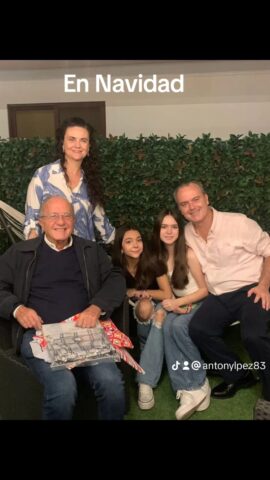
Awards
After receiving the keys to the cities of Miami and Honduras, as well as certificates, one of his greatest honors was the Grand Cross of Isabel La Católica from King Juan Carlos I of Spain, for bringing the king and queen to Costa Rica.
Message to Costa Ricans
Don Antonio calls on the Costa Rican people to be properly informed about international conflicts and not to be swayed by unfounded opinions. The history of Israel, in his view, is complex and deserves to be understood in its entirety.
“You must educate yourselves, search for reliable sources online. People cannot speak without knowing the situation. The conflicts in the Middle East have been going on for many years, many centuries. The State of Israel was created in 1947, but with regard to Israel, if you read the Bible, you will learn about the history of the Israelites, of the Jews, who have always been persecuted for more than 3,000 years. You have to look at both sides of the coin and then judge. And to be sure, you have to come here and see it with your own eyes. That’s why when I want to know something, I go directly to the source,” he said.
In a world where dissent and conflict seem to dominate, Don Antonio’s story is a beacon of hope that reminds us of the importance of understanding, respect, and the constant search for peace. His life is a testament to perseverance and commitment to achieving collective well-being and growth.

